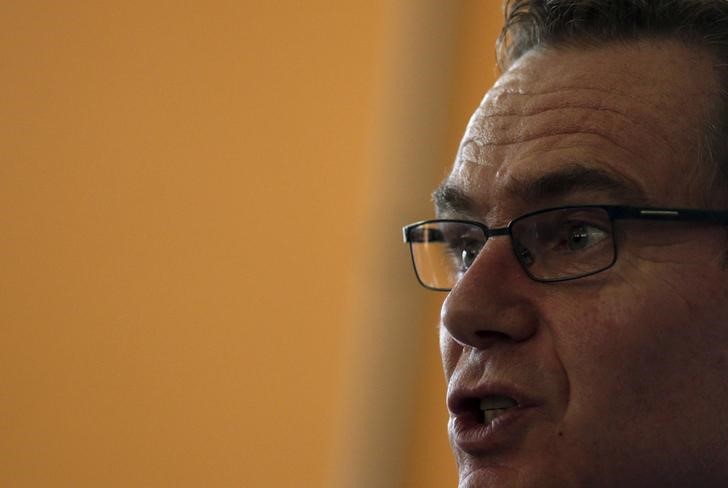LONDON (Reuters) - BHP Billiton (AX:BHP) (L:BLT) Chief Executive Andrew Mackenzie said on Monday that businesses could face a decade of damaging uncertainty if Britain voted to leave the European Union in a June 23 referendum.
Mackenzie, boss of the world's biggest mining company, said a vote for Brexit would inflict a serious blow on the EU and that Britain would lose economic, political and diplomatic clout by leaving the club it joined in 1973.
Unpicking EU trade deals and replacing them with British deals could usher in a decade of complicated negotiations that would end in a less favourable deal for Britain, he said.
"On trade, the EU has negotiated broadly effective deals for Europe and the UK. Restoring these agreements after Brexit would take years, perhaps a decade, of negotiation," Mackenzie will say in a speech in London on Monday.
Mackenzie, who was born in Scotland and studied for his doctorate in France and Germany, said such a lengthy negotiation would be "a time-consuming distraction to maintain market access we have today on terms that are likely to be worse."
"By leaving, the UK would stop being rule makers and become rule takers," said Mackenzie, who was appointed CEO of BHP on May 10, 2013.
BHP, headquartered in Melbourne, Australia and listed in both Australia and Britain, is one of the world's top producers of iron ore, metallurgical coal, copper and uranium, and has substantial interests in conventional and unconventional oil and gas and energy coal.
Pro-Europeans warn an exit from the EU would hurt Britain's economy and could trigger the break-up of the United Kingdom by prompting another Scottish independence vote.
Opponents of EU membership say Britain would prosper outside the bloc that they say hits far below its economic weight on the global stage.
A British exit would shake the Union to its core, ripping away its second largest economy and one of its top two military powers.
"Brexit would inflict a blow on the EU that it can hardly afford given the euro zone and migration crises. Without the UK, the EU would be weaker," Mackenzie said.
"British business cannot afford a knock and global leaders are amazed that the UK would even consider leaving," he said.
Both U.S. President Barack Obama and Chinese President Xi Jinping have urged Britain to stay, but British voters - and Cameron's ruling Conservative Party - are split on membership.
Polls suggest that about a fifth of voters are undecided.
"The in and out campaigns are really about unilateralism versus internationalism. Most businesses support the EU and internationalism," said Mackenzie.

"For Britain to wield the economic political and diplomatic capital it has historically enjoyed, we must vote to Remain."